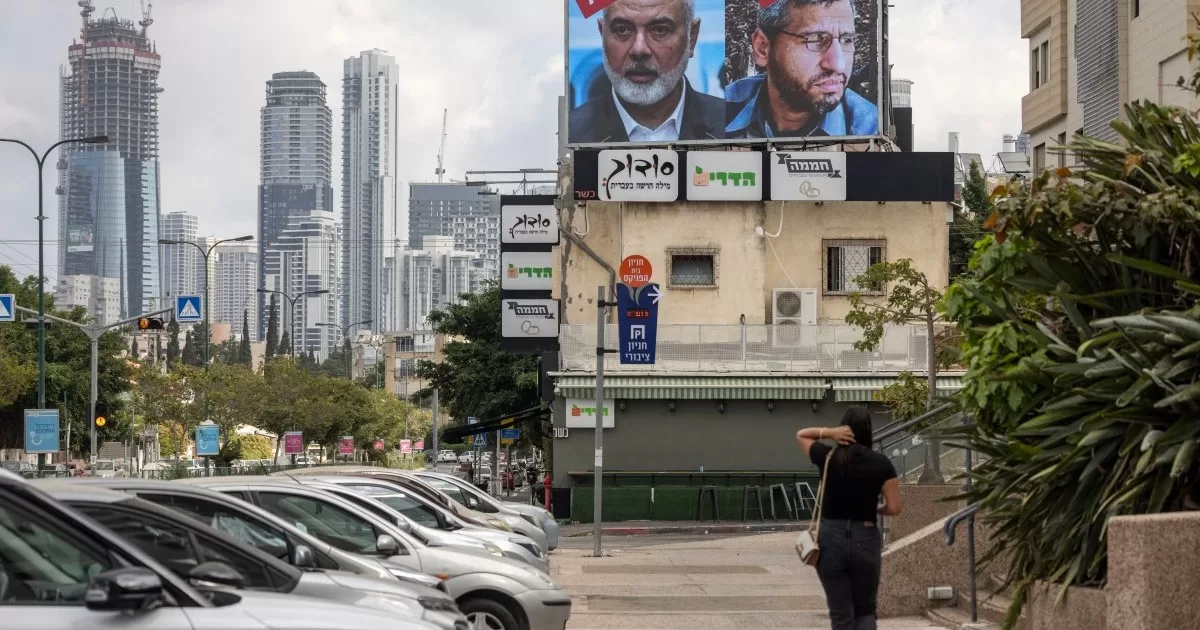Israelis are bracing for a response to the assassinations this week of Hamas’s political chief and a commander with the Lebanese armed group Hezbollah, Israel-based analysts tell Al Jazeera.
Hezbollah commander Fuad Shukr and Ismail Haniyeh of Hamas, who was a key figure in the Gaza ceasefire negotiations, were killed within hours of each other in Beirut and Tehran respectively. Israel has not commented on Haniyeh’s killing but claimed Shukr’s. Israeli military planners said Shukr was behind a recent attack on the Israeli-occupied Golan Heights that killed 12 children although Hezbollah has denied responsibility.
Iranian Supreme Leader Ali Khamenei has promised “harsh punishment” for Israel in retaliation for the killing of Haniyeh in the Iranian capital. Iran’s leaders have promised “harsh revenge“. As thousands in Tehran poured onto the streets to mourn the Hamas leader, top Iranian newspapers covered the event through themes of revenge, bereavement and defiance.
Hezbollah’s leader Hassan Nasrallah, meanwhile, said a response is “inevitable“.
Anticipating such a response, Israel’s military said it was on “high alert”, according to Israeli media. They reported Israel was looking to finalise an international coalition to help deflect an attack.
In April after Israel struck the Iranian consulate in Damascus, Israel said with the help of the United States, the United Kingdom and France, it intercepted missiles and drones launched by Iran in an unprecedented attack.
‘General sense of anxiety’
Video footage from the Middle East Eye shot on the streets of Tel Aviv, Israel, showed a divided public mood. One woman said she “didn’t feel safe” and cancelled her plans on Wednesday morning after Haniyeh’s assassination. Another woman told the outlet people were “happy” about the assassination but were aware it could cause a larger war.
“People are tense, sure,” said Ori Goldberg, a Tel Aviv-based expert on Israeli politics. “There are fewer people on the street, there’s a general sense of anxiety, but it’s not anywhere near as hysterical as in October when people were convinced that Hezbollah was going to invade from the north,” he said, describing the days after the October 7 Hamas-led attacks in southern Israel. It was a fear that did not come to pass.
The assassinations have restored some level of public confidence in Israeli Prime Minister Benjamin Netanyahu and in the military after the October 7 attacks, widely seen by experts and the Israeli people as an intelligence failure, Israeli pollster and former Netanyahu aid Mitchell Barak said.
However, Barak added: “I don’t think anyone knows what’s going to happen now. I think everyone’s trying to work out what the response will be or where it’s going to come from.”
Public satisfaction and dissociation
“Apart from the timing, the two assassinations have nothing in common,” said Alon Pinkas, an Israeli diplomat and a columnist with the Israeli newspaper Haaretz.
Pinkas said the killing of Shukr was a response to the attack in the Golan. In contrast, the assassination of Haniyeh, who was killed just hours after attending Iranian President Masoud Pezeshkian’s inauguration, could elicit a stronger response.
“Of course, Haniyeh’s killing could just have been opportunistic and born of a need for vengeance and a love of drama and fireworks,” Pinkas said, before adding that he thought the idea of Israel’s political or military leadership not considering the consequences of the killing unlikely. “If the reports we’re seeing in The New York Times are right, suggesting that a bomb had been placed in his accommodation months earlier, that makes the timing and location deliberate, leaving Iran no choice but to escalate, ending any chance of a hostage deal or ceasefire.”
The assassination of Haniyeh in Tehran appeared designed to undermine Iran, Pinkas said. But the choice of target is less clear-cut, he said.
Unlike Yahya Sinwar, the top Hamas leader in Gaza, Haniyeh moved to Qatar in 2019 and was regarded as a relatively moderate political figure within Hamas and one of the best candidates to end the conflict and secure the release of the captives held in Gaza since October 7, one of the Israeli public’s overriding concerns.
Nevertheless, Goldberg said, his death has still elicited a measure of public satisfaction.
“It seems strange, I know, but there’s a level of public dissociation at work here,” Goldberg said. “Given the environment, the public has little problem separating the call for the hostages’ return and celebrating the killing of the man Israel was in talks with to achieve that,” he said, referring to how Israelis are traumatised by the events of October 7.
Critics of Netanyahu both within Israel and abroad have been quick to suggest the high-profile nature of Haniyeh’s assassination may be a ploy by the embattled prime minister to protract and escalate the conflict to avoid the collapse of his fragile coalition government and the holding of early elections.
For now on the streets of Tel Aviv, “there’s the anxiety,” Goldberg said. “But there’s also a sense of resignation. There’s this sense that this is Israel’s fate. People believe that Israel will always have to defend itself and, with that, comes this idea of total impunity. For many, that’s just the way it is.”
